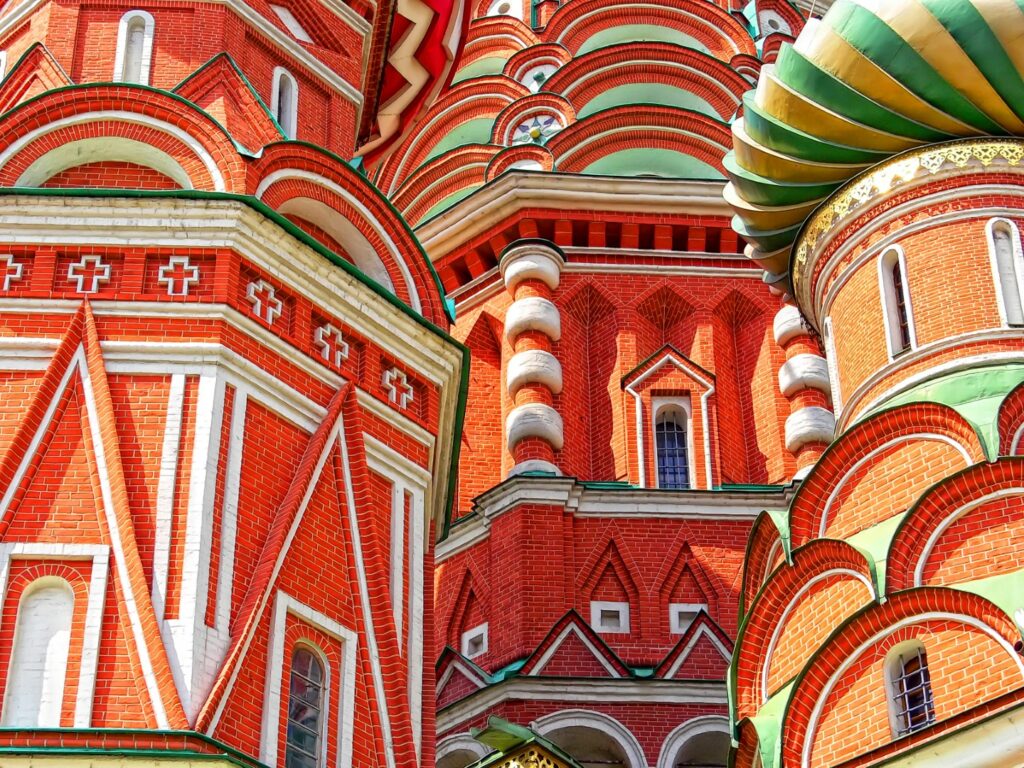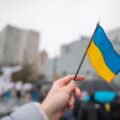Loyalty or resistance to Moscow? A difficult dilemma for Russian Orthodox churches
Loyalty or resistance to Moscow? A difficult dilemma for Russian Orthodox churches
Russian Orthodox churches are facing a dilemma: should they stay loyal to Kirill, who supports the Russian war, or disconnect from the Moscow Patriarchate?
Religious reasons for the Russian invasion
The Russian Orthodox Church in Moscow plays a prominent role in the Russian war against Ukraine. Patriarch Kirill, spiritual leader of the Russian Orthodox Church, openly supports the invasion of Ukraine. Commentary on the war suggests that he even provides a justification for it. This justification is claimed to be based on a narrative that frames the holy East as opposing the morally depraved West. In this narrative, the invasion represents a kind of ‘holy war’ against the ‘godless’ influences of Western culture.[1] In one of his sermons, Patriarch Kirill refers to Western practices like the acceptance of homosexuality and LGBTQ+ Pride events as reasons for the war against Ukraine. He seems to be claiming that Russian culture needs to be protected from such ‘sinful’ cultural patterns.[2] In this way, Patriarch Kirill can be viewed as justifying the war against Ukraine.
Yet another religious justification for the Russian invasion is the fear of the destruction of the Russian Orthodox Church in Ukraine. In 2018, the Orthodox Church in Ukraine separated from the Moscow Patriarchate to start an independent existence. This schism has been cited by both the Kremlin and Patriarch Kirill as a reason for invading Ukraine.[3]
Loyalty or resistance?
These considerations show that the Russian Orthodox Church in Moscow plays a major part in the war against Ukraine. Because of this, Russian Orthodox churches worldwide are facing a difficult dilemma: should they stay loyal to Patriarch Kirill or disconnect from the Moscow Patriarchate as a sign of resistance to the war?[4]
In March 2022, a Russian Orthodox church in Amsterdam decided to disconnect from the Moscow Patriarchate. The church spoke out against Moscow, expressing disapproval of the war against Ukraine. Despite this being customary, they refused to pray for Patriarch Kirill during their church services because of his supportive attitude towards the war. Eventually, the clergy of the church decided that they were no longer able to stay loyal to the Moscow Patriarchate. They chose to transfer to the Ecumenical Patriarchate of Constantinople.[5]
By leaving the Moscow Patriarchate, this Amsterdam church expressed resistance to and disapproval of the Russian invasion. Some other Dutch Russian Orthodox churches, however, responded to the schism of the Amsterdam church with disapproval. They stated that Russian Orthodox churches ought to stay loyal to the Moscow Patriarchate, despite its association with the war against Ukraine. A reason for this conviction is the idea that religion and politics are essentially separate matters. By disconnecting from Moscow, they believe that the Amsterdam church is guilty of mixing up religion and politics.[6]
Religion and politics: separate or intertwined?
The question is whether the idea that religion and politics are separate is plausible in this context. The answer seems to be simple: it is not. In Russia, religion and politics are deeply intertwined. Russian church services are not strictly religious. They typically involve the sanctification of Russian national identity. It can be said, then, that they have a religious-nationalist character. In a way, the Russian Orthodox Church represents the exaltation of Russian national identity to a holy status.[7]
This interlacing of Russian religion and politics is also visible in the reasons given for the Russian invasion of Ukraine: the Russian Orthodox Church employs a religious-nationalist narrative that sanctifies Russian nationalism in order to justify the war. Because of this, the separation of religion and politics is hardly applicable to this context. When it comes to the Russian war against Ukraine, religion and politics are not separate matters. Therefore, the dilemma between loyalty or resistance to Moscow has to be informed by the political situation.
Want to learn more about similar topics? Go to the EARS Dashboard.
Sources
[1] De rol van de kerk in de vuile Russische strijd is ronduit schokkend
[2] Anti-homopreek van patriarch schreeuwt om weerwoord
[3] Kerkvorst Kirill heeft zijn lot aan godgeschenk Poetin verbonden
[4] De geestelijken in de Russisch-Orthodoxe Kerk voelen zich onder druk gezet
[5] Russisch-Orthodoxe geestelijken in Amsterdam verlaten kerk van Moskou
[6] De geestelijken in de Russisch-Orthodoxe kerk voelen zich onder druk gezet
[7] Voert Poetin oorlog vanuit het christendom? ‘In Rusland lopen religie en politiek door elkaar’






